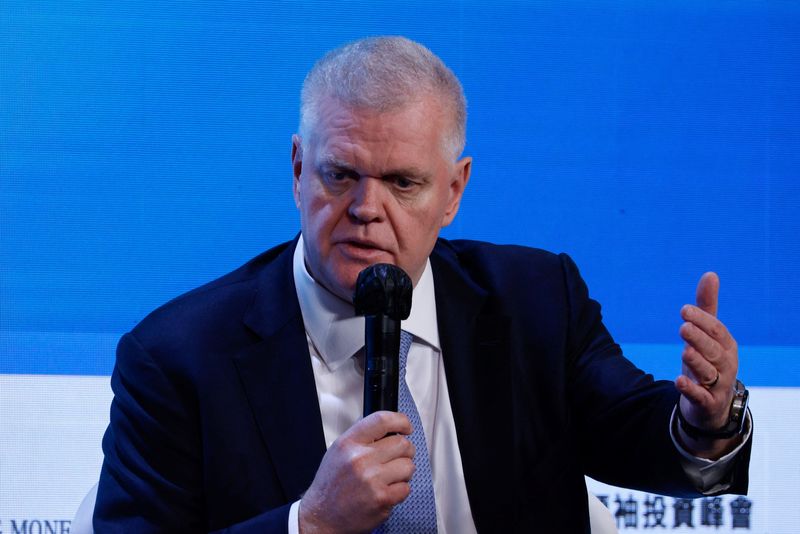By Lawrence White and Iain Withers
LONDON (Reuters) - HSBC has identified $1.7 billion of extra costs that can be stripped out next year, Chief Executive Noel Quinn said on Friday, as the bank battles to improve returns amid calls for it to be broken up by its biggest shareholder.
The cuts - on top of existing targeted savings - are needed to help HSBC control costs amid high inflation, Quinn told a Financial Times conference in London, adding the bank's overall target of costs rising 2% next year remained unchanged.
"That's how I'm going to deliver 2%," Quinn said. "I'm not going to pretend it's easy."
At third quarter earnings in October, HSBC estimated it would make $1 billion of additional savings in 2023. The extra cuts will include closing down portfolios, but most planned job cuts were already in place, Quinn said.
The bank has stepped up moves to trim underperforming businesses, agreeing the sale of its Canadian retail bank to RBC this week and kick-starting a review of its consumer operations in New Zealand.
Quinn also said he did not believe a campaign calling on the bank to split itself up by its biggest investor, Chinese insurer Ping An, was politically motivated.
HSBC has come under concerted pressure from Ping An Insurance Group, which has urged the bank to split off its Asian business to boost returns.
The campaign has come amid rising geopolitical tensions between China and the West, leading to speculation Ping An's move could at least partly be prompted by Beijing.
"No, I do not believe it's politically motivated, based on all of the dialogue that we've had with various stakeholders," Quinn said.
He said other institutional shareholders he had spoken to saw no economic rationale for splitting up HSBC further.
He also reiterated his faith in the bank's second home of Hong Kong, despite concerns among Western financial firms that Beijing's tightening grip on the city is eroding its autonomy and value as a financial hub.
"I also believe Hong Kong will remain an international financial centre," Quinn said, adding the hub was likely to remain the best international capital market for Chinese companies.

Quinn said he planned to stay at the helm of the bank for "many more years" to see his plans through, if the board remained happy with his efforts.
He also reiterated his sceptical stance on cryptocurrencies, saying the bank had no plans to go into offering crypto to retail investors nor to start a trading desk for digital currencies, in contrast to some other big banks.